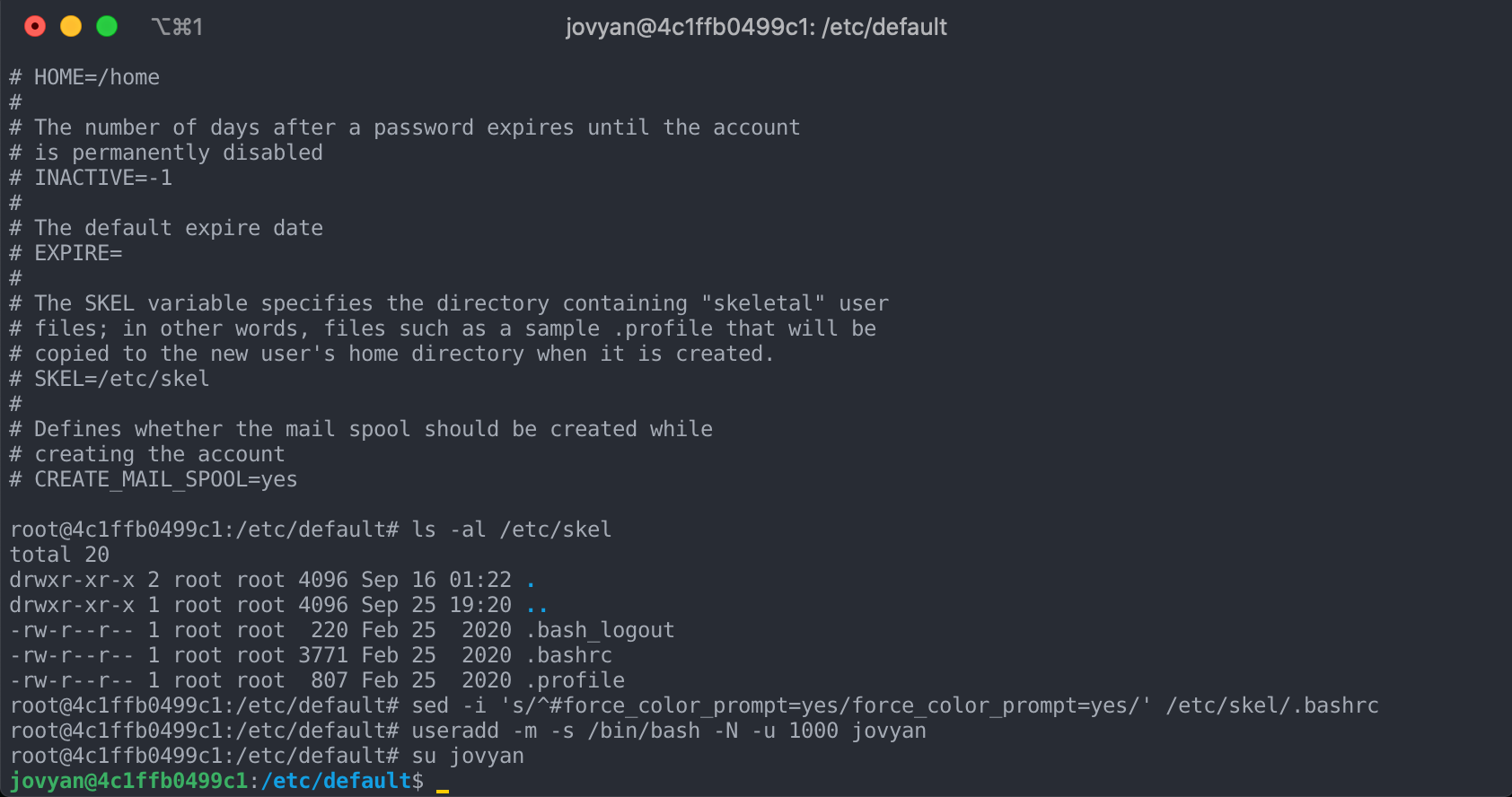Skeletal profiles
Contents
Sample startup files are traditionally kept in
/etc/skel. If you customize your systems' startup file examples,/usr/local/etc/skelis a reasonable place to put the modified copies.1
What is inside?
Default startup files are stored in /etc/skel.
|
This directory is used during the addition of users.
|
Customizing the startup file
In Jupyter Docker Stacks, we are customizing the startup .bashrc file2.
It is done before the creation of the default user (jovyan), so it will benefit for this customization.
And the same goes for any other user that will be created—it’s the case when images are spawned by JupyterHub for example.
Let’s illustrate it.
|
Here is the result, beautiful!

Color prompt
Note
The file is modified in place instead of being done in a copy in
/usr/local/etc/skel like advised in the book because we are working on an image and not on a system that will be updated.